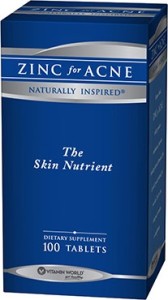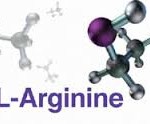 Acne affects men and women and outbreaks can affect any parts of the face, back, neck, body, scalp or vagina. The majority of those who are affected are between the ages of 12 and 24 years.
Acne affects men and women and outbreaks can affect any parts of the face, back, neck, body, scalp or vagina. The majority of those who are affected are between the ages of 12 and 24 years.
While there have been many proposed theories about one vitamin able to prevent or treat acne, researchers have found this not to be the case. Instead, they have found that the skin, the second largest organ in the body, responds incredibly well to good nutrition and hygiene. A combination of vitamins and minerals do appear to improve the skin condition of people who have relatively poor nutrition.
One of those minerals which has shown promise and has good case studies to support the claims, is zinc. (1,2) Zinc is beneficial for growth, wound healing, sperm production, male reproduction and prevention of acne. Researchers have also found that zinc is important in the use of insulin (the hormone that regulates sugar in the body) and the replication of DNA. In other words, this mineral appears to play an important role in many of the bodies functions.
Using zinc for acne treatment is an effective way of reducing oil production in the skin. The action appears to be similar to that of tetracycline. Using zinc is also helpful to protect the body from free radicals and are necessary for the production of new white blood cells.
Current oral zinc preparations are in the form of zinc gluconate or zinc sulfate. Zinc picolinate is also a form that combines organic salt and zinc. Food sources include seafood, poultry, nuts, wheat germ, sunflower seeds, fortified cereals, brewers yeast, brazil nuts, pumpkin seeds and legumes.
Studies to support the use of zinc to treat acne outbreaks alone are sparse. There have been some case studies that support the use of zinc. Individuals should never take more than 100 mg of zinc. Individuals should not take additional copper with zinc because it will block the action of the zinc in the body.
Before adding zinc into your diet be sure to consult your primary care physician. While the doctor may not believe that taking additional zinc will help your skin condition it is important to be sure that it will not impact your treatment of any other underlying medical conditions. Unless there are medical reasons not to take the supplement, zinc is relatively safe with little to no side effects. It is also cost-effective and can very well help your skin condition. The question isn’t “can I?” But rather, “it is there a reason I shouldn’t?”
References:
(1) Oregon State University Linus Pauling University; Zinc
http://lpi.oregonstate.edu/infocenter/minerals/zinc/
(2) MayoClinic.com; Acne
http://www.mayoclinic.com/health/natural-acne-treatment/AN01716
| Advertisement | |
Zinc for Acne includes:
|
|




Leave a Reply